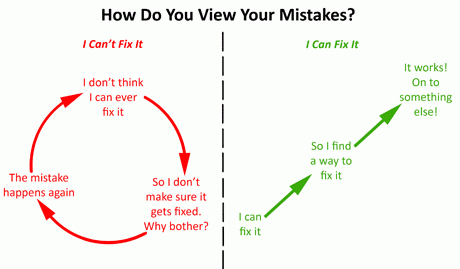Sep
2016
TEDxGeorgiaStateU talk released: “Failure is Necessary to Discovery in STEM”
The latest batch of TEDxGeorgiaStateU talks from April was finally released, and among them are talks by two SIFs: Krisna Patel and me. The title of my talk was “Failure is Necessary to Discovery in STEM.”
My talk touches on both the broad-reaching and the personal implications of failure. I talk about how prohibiting “failure” inhibits classroom learning in the sciences and other STEM fields. I also speak to how this same practice of prohibiting failure extends into the culture of STEM fields beyond the classroom.
In my TEDx talk, I mainly talk about why we need students to build resiliency to failures in STEM classrooms. I don’t talk very much about how to accomplish this so I will write briefly about that here.
Many STEM educators are working on changing the taboo against making mistakes. This starts with changing how students feel about their mistakes. Educational innovation in this area involves structuring classroom activities such that instead of internalizing mistakes, students instead focus on figuring out where their errors came from and tracing the problem back to its source. We want to get students from “I’m stupid” and “I can’t do this” to “I can figure this out.”

Credit: Hunter Maats and Katie O’Brien of “The Straight ‘A’ Conspiracy”
Shifting students’ perspectives on their mistakes also involves building self-reflection and metacognitive tasks into assignments so that students know where their mistakes come from. An effective strategy for this is figuring out where students’ intuitions about a topic coincide with how scientists view a topic.
Physics education researchers at the University of Maryland have built “intuition refinement diagrams” into their Open Source Tutorials. Here is an example of one of the questions that uses intuition refinement:

Source: Open Source Tutorials: Newton’s Third Law (University of Maryland)
Question: A moving truck rams into parked car. The moving truck has twice the mass of the parked car. Which vehicle feels a bigger force from the other?
Most students have the intuition that the car will “feel” twice the force that the truck will feel. This intuition is often based on past experience. Perhaps a student witnessed a similar car collision and saw the smaller vehicle “react” to the collision more than the larger vehicle did. However, the correct answer according to Newton’s third law is that both vehicles will experience the same force. The tutorial designers recognized the gap between students’ “common sense” intuition and the correct physical explanation. The questions in the tutorial ask students to think about their initial intuition and shows them that it came from valid thought processes. The common student belief – that the car “feels” more force than the truck – violates Newton’s 3rd law. But the intuition has a grain of truth in it: namely, that the car has twice the acceleration of the truck while the collision is taking place rather than twice the force. The tutorial helps students to refine their intuitions and to recognize that they are not entirely wrong in their raw intuition. It helps students to see that Newtonian physics does not violate common sense by connecting the physics to student ideas.

Source: Open Source Tutorials: Newton’s Third Law (University of Maryland)
When students think that their common sense does not agree with what they are learning in science class, it is a huge blow to self-esteem and to science identity. It makes students reluctant to continue learning science since “it doesn’t even make sense.” (One of my students said this.) On the other hand, if we show students that science can be intuitive when you have sufficient background information, this makes them build resiliency; they don’t respond as destructively to mistakes and failures in the classroom.
You can watch my talk below. If you have any comments or suggestions about how to help students to accept and embrace their learning mistakes and failures, please let me know in the comments.